"Optimized Relay Node Selection for Enhanced Delivery Rate in Vehicular Adhoc Networks"
Problem Definition
Problem Description: One of the main challenges in Vehicular Adhoc Networks (VANETs) is selecting the most suitable relay node for data transmission in order to ensure high delivery rates of information. Traditional techniques for relay node selection are not efficient as they are influenced by the lowest ratio of package distribution, leading to poor performance in terms of Packet Delivery Ratio (PDR), delay at border, and hop counts. This hinders the effectiveness and reliability of communication in VANETs, particularly in scenarios where large physical areas need to be covered. To address this issue, a Particle Swarm Optimization based routing protocol needs to be designed to enhance the selection of relay nodes in VANETs, thereby improving the overall delivery rate and communication efficiency in the network.
Proposed Work
The proposed work aims to design a Particle Swarm Optimization-Based Routing Protocol for Vehicular Adhoc Networks (VANETs) to achieve a high delivery rate. VANETs play a crucial role in ensuring road safety by enabling communication between vehicles and roadside units. However, direct communication between vehicles is not possible in VANETs, requiring data transmission through relay nodes. Existing relay node selection mechanisms have limitations in terms of package distribution ratio. This research proposes an optimization strategy for relay node selection in VANETs to overcome these limitations.
The study utilizes simulation results to demonstrate that the proposed approach significantly outperforms conventional techniques in terms of Packet Delivery Ratio (PDR), delay at border, and hop counts. The modules used in this study include Basic Matlab, Buzzer for Beep Source, Energy Metering IC or Module, Induction or AC Motor, and Wireless Sensor Network. This work falls under the categories of Latest Projects, MATLAB Based Projects, and Wireless Research Based Projects, with subcategories including MATLAB Projects Software, Particle Swarm Optimization, Swarm Intelligence, and Routing Protocols Based Projects. By leveraging optimization and soft computing techniques, this research contributes to the ongoing advancement of wireless communication protocols for vehicular networks.
Application Area for Industry
This project's proposed solutions can be applied to various industrial sectors such as transportation, logistics, and smart cities. In the transportation sector, the implementation of the Particle Swarm Optimization-based routing protocol in VANETs can enhance communication between vehicles, leading to improved road safety and traffic management. In the logistics industry, this project can improve data transmission efficiency between vehicles and warehouses, optimizing supply chain operations. In smart cities, the use of this protocol can enable seamless communication between different smart devices and infrastructure, enhancing overall connectivity and efficiency.
Specific challenges that industries face that this project addresses include inefficient relay node selection mechanisms leading to low Packet Delivery Ratios, delays in data transmission, and high hop counts.
By employing Particle Swarm Optimization, the project overcomes these limitations and significantly improves communication efficiency in VANETs. Industries can benefit from the increased reliability, reduced delays, and improved overall performance of their communication networks by implementing this optimized routing protocol.
Application Area for Academics
The proposed project on Particle Swarm Optimization-Based Routing Protocol for Vehicular Adhoc Networks (VANETs) holds immense potential for research purposes for MTech and PhD students. In the context of VANETs, where relay node selection is crucial for efficient data transmission, the project offers a novel solution to enhance packet delivery rates and communication efficiency. By utilizing optimization techniques and simulation models, researchers can explore innovative methods for selecting relay nodes in VANETs, ultimately improving network performance in terms of Packet Delivery Ratio (PDR), delay at border, and hop counts. The project incorporates modules such as Basic Matlab, Buzzer for Beep Source, Energy Metering IC or Module, Induction or AC Motor, and Wireless Sensor Network, making it suitable for students pursuing research in MATLAB-based projects, optimization and soft computing techniques, and wireless communication protocols. By delving into areas such as Particle Swarm Optimization, Swarm Intelligence, and Routing Protocols, students can leverage the code and literature of this project for their dissertations, theses, and research papers, thereby contributing to the advancement of wireless communication protocols for vehicular networks.
The future scope of this project includes further exploration of optimization strategies and algorithmic enhancements to continually improve communication efficiency and reliability in VANETs.
Keywords
Vehicular Adhoc Networks, VANETs, Relay Node Selection, Particle Swarm Optimization, High Delivery Rate, Packet Delivery Ratio, Communication Efficiency, Simulation Results, Optimization Strategy, Wireless Sensor Network, MATLAB Based Projects, Swarm Intelligence, Routing Protocols, Soft Computing Techniques, Road Safety, Communication Between Vehicles, Roadside Units, Relay Node Mechanisms, Package Distribution Ratio, Wireless Communication Protocols.
| Shipping Cost |
|
No reviews found!






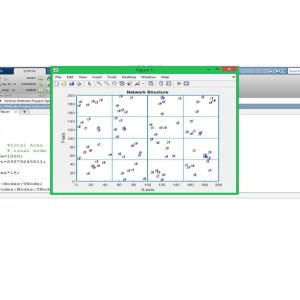
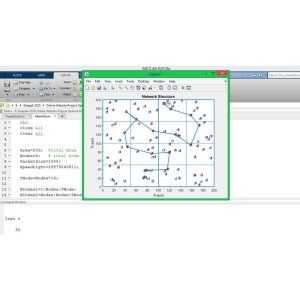










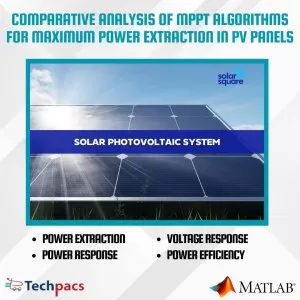

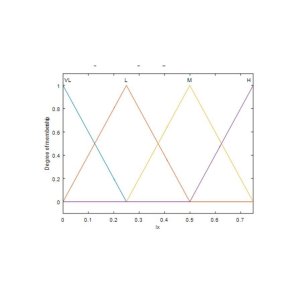
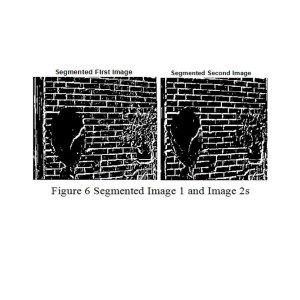

































No comments found for this product. Be the first to comment!